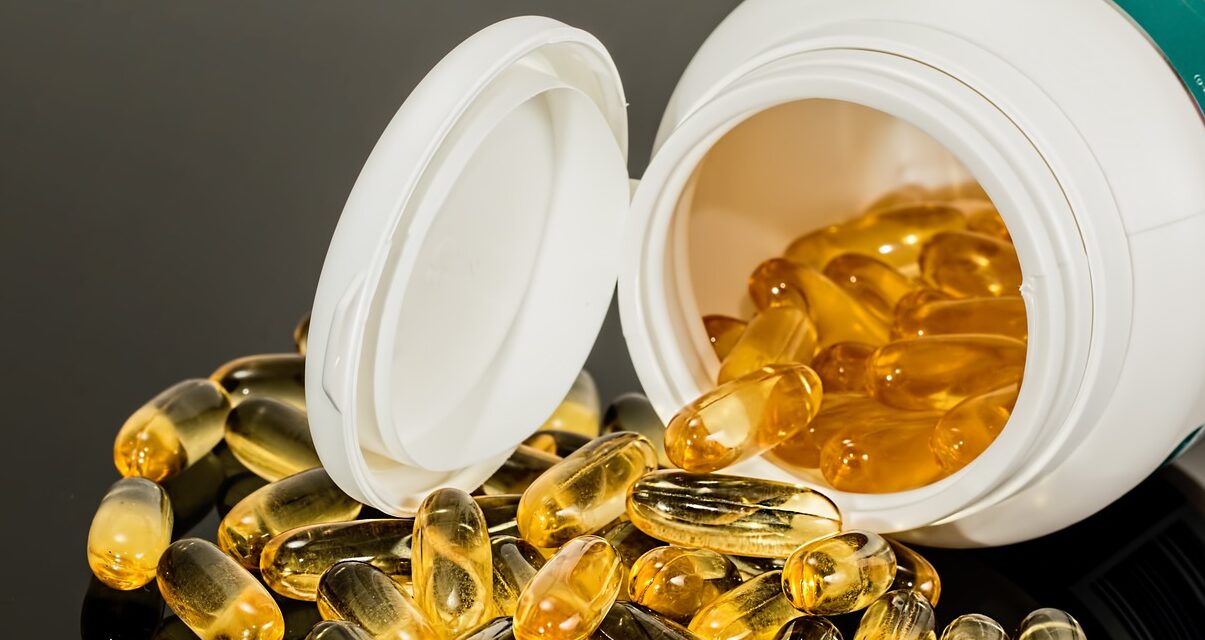Hey there! Welcome to our article on strengthening immunity and the essential supplements that can help boost your immune system. In today’s fast-paced world, maintaining a strong immune system is crucial for overall health and well-being. Supplements play a vital role in supporting immune health, and that’s exactly what we’re going to explore in this article. So let’s dive in and discover how these supplements can bolster your body’s defenses against illnesses and keep you in top shape.
Understanding the Immune System
To appreciate the significance of immune-boosting supplements, it’s essential to understand how the immune system functions. Your immune system is a complex network of cells, tissues, and organs working together to defend your body against harmful pathogens, such as bacteria, viruses, and parasites. It acts as a shield, protecting you from infections and diseases. A well-functioning immune system not only helps prevent illness but also aids in recovery and maintaining optimal health.
The Role of Nutrition and Supplements in Strengthening Immunity
Nutrition plays a pivotal role in supporting immune health. A balanced diet rich in vitamins, minerals, antioxidants, and other essential nutrients provides the foundation for a robust immune system. However, even with a healthy diet, it can be challenging to meet all the nutrient requirements solely through food. This is where supplements come into play. They can fill the nutritional gaps, ensuring you have adequate levels of vital immune-supporting nutrients.
Vitamin C

Vitamin C is a superstar when it comes to immune health. This powerful antioxidant supports various immune functions, including the production of white blood cells and antibodies that help fight off infections. It also aids in the repair and growth of tissues throughout the body. While citrus fruits like oranges and lemons are well-known natural sources of vitamin C, there are also excellent vitamin C supplements available that can provide an extra immune-boosting punch.
Vitamin D
Vitamin D, often referred to as the sunshine vitamin, plays a crucial role in immune function. It helps regulate the immune response and supports the production of antimicrobial peptides that combat pathogens. Sun exposure is a primary natural source of vitamin D, but it can be challenging to obtain sufficient levels, especially in regions with limited sunlight. That’s why vitamin D supplements are popular, particularly during darker months or for those with limited sun exposure.
Zinc
Zinc is an essential mineral that contributes to a healthy immune system. It plays a vital role in the development and functioning of immune cells, including T cells and natural killer cells, which are crucial in fighting infections. Zinc also supports the production of antibodies and aids in wound healing. While dietary sources like oysters, red meat, and legumes provide zinc, supplementing with zinc can be beneficial, particularly for those with inadequate dietary intake or increased needs.
Probiotics
Did you know that your gut health is closely intertwined with your immune function? Probiotics, also known as beneficial bacteria, help maintain a healthy balance in the gut microbiome. This, in turn, supports immune responses. Probiotics enhance the production of antibodies, strengthen the gut barrier, and regulate immune system activity. Natural food sources of probiotics include yogurt, sauerkraut, and kimchi. If dietary intake is insufficient, probiotic supplements can be a convenient option to support your gut and immune health.
Other Supplements for Strengthening Immunity
While vitamin C, vitamin D, zinc, and probiotics are key players in immune health, several other supplements deserve mention for their potential immune-supporting benefits. Elderberry, echinacea, and garlic are well-known for their traditional uses in promoting immune function. These supplements have been associated with supporting the body’s defenses against infections and may provide additional immune support. It’s important to note that individual responses may vary, and consulting with a healthcare professional is always recommended before starting any new supplements.
Benefits of Omega-3 Fatty Acids:

Omega-3 fatty acids are essential fats that play a significant role in immune health. They are known for their anti-inflammatory properties and their ability to modulate immune cell function. Here are some key points to consider:
- Reduce inflammation: Omega-3s help regulate the immune response by reducing inflammation, which is crucial for maintaining a balanced immune system.
- Support immune cell activity: These fatty acids aid in the proper functioning of immune cells, including B cells and T cells, which play essential roles in immune responses.
- Enhance antibody production: Omega-3s can boost the production of antibodies, strengthening the body’s defense against infections.
Dietary Sources of Omega-3s:
- Fatty fish: Cold-water fish like salmon, mackerel, and sardines are excellent sources of omega-3 fatty acids.
- Plant-based sources: Flaxseeds, chia seeds, hemp seeds, and walnuts contain alpha-linolenic acid (ALA), a precursor to other omega-3 fatty acids.
Omega-3 Supplements:
- Fish oil supplements: Fish oil capsules or liquids derived from fatty fish are popular omega-3 supplements.
- Algae-based supplements: Algae-derived omega-3 supplements offer a plant-based alternative, particularly suitable for vegetarians and vegans.
- Dosage considerations: Consult a healthcare professional to determine the appropriate dosage based on your individual needs and health status.

Echinacea
Echinacea is a well-known herb traditionally used for immune support. While its exact mechanisms are not fully understood, echinacea is believed to stimulate the immune system and offer potential benefits. Here’s more information:
Potential Benefits of Echinacea:
- Immune-stimulating properties: Echinacea has been suggested to activate immune cells, such as macrophages, natural killer cells, and T cells, potentially enhancing immune response.
- Cold symptom relief: Some research suggests that echinacea may help reduce the severity and duration of cold symptoms, although results are mixed.
Forms of Echinacea Supplements:
- Capsules or tablets: These are the most common forms of echinacea supplements, providing convenient and standardized dosages.
- Tinctures: Echinacea tinctures, made by extracting the herb in alcohol or glycerin, offer a liquid form for easy administration.
- Teas: Echinacea teas combine the herb with other ingredients and offer a soothing option for immune support.
Choosing and Using Echinacea Supplements:
- Quality and safety: Look for reputable brands that ensure high-quality echinacea products. Consider factors such as manufacturing practices, certifications, and third-party testing.
- Consulting a healthcare professional: Before using echinacea or any other supplements, especially if you have any underlying health conditions or take medications, consult with a healthcare professional for personalized advice.
Strengthening Immunity Through Sleep and Stress Management:

Sleep and stress management plays vital roles in maintaining a robust immune system. Here’s why they matter and some strategies to improve both:
Importance of Sleep in strengthening immunity:
Restorative function: Quality sleep allows the body to repair and regenerate, optimizing immune function.
Sleep deprivation and immune response: Lack of sleep can impair immune responses, making you more susceptible to infections.
Strategies for better sleep: Establish a consistent sleep schedule, create a calming sleep environment, practice relaxation techniques like deep breathing or meditation, limit caffeine and electronics before bedtime, and ensure physical comfort.
Managing Stress:
Chronic stress and immune health: Prolonged stress can weaken the immune system, making you more vulnerable to illnesses, al the more reason to focus on strengthing immunity now rather than later in life.
Stress reduction techniques: Engage in regular exercise, practice mindfulness or meditation, connect with loved ones, pursue hobbies, and prioritize self-care activities that help alleviate stress.
Prioritizing self-care: Adequate rest, a balanced diet, and engaging in activities that bring joy and relaxation can help reduce stress and support overall well-being.
FAQ:
Q: Can these supplements prevent me from getting sick?
A: While these supplements can support immune function, they are not a guarantee against illness. They work in synergy with a healthy lifestyle and should be used as part of a well-rounded approach to immune health.
Q: Are there any side effects from taking these supplements?
A: When taken as directed, these supplements are generally safe for most people. However, it’s important to follow the recommended dosages and consult with a healthcare professional if you have any underlying health conditions or are taking medications.
Q: Can I take these supplements all at once?
A: It’s generally safe to take these supplements together. However, it’s a good idea to spread them out throughout the day to optimize absorption and avoid any potential interactions.
Q: How long should I take these supplements?
A: The duration of supplement usage can vary. It’s best to consult with a healthcare professional for personalized advice based on your specific health needs.
Conclusion:
Strengthening immunity to maintain a robust immune system is vital for overall health and resilience against illnesses. By incorporating essential supplements like vitamin C, vitamin D, zinc, and probiotics into your daily routine, you can give your immune system the extra support it needs. However, remember that supplements are meant to complement a healthy lifestyle, not replace it. Prioritize a well-balanced diet, regular exercise, sufficient sleep, stress management, and hygiene practices to optimize your immune health. And always consult with a healthcare professional before adding any new supplements to your regimen.
